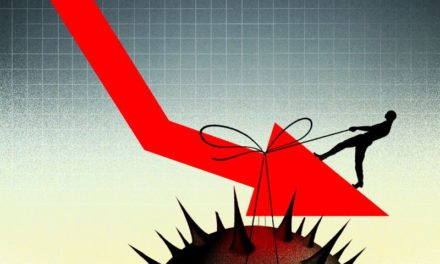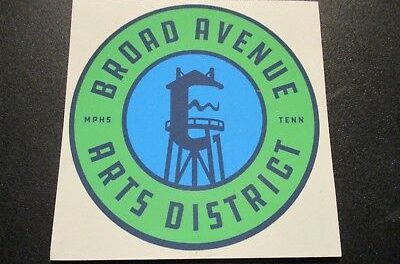Posted September 17, the following commentary was by far the most read and circulated post of 2014:
The young man – African American, 23 years old – sits at a picnic table behind a Germantown assisted living facility with his head in his hands.
He is exhausted and lost. He is working two jobs to support his new baby, and his schedule and the pressures of a growing family are catching up with him. He imagines a time when things will be better, a time when he can find one job that would support his young family.
There are tens of thousands of young African-Americans like him in Memphis, doing the best that they can under difficult circumstances to do what is right and play by the rules. All they want is the opportunity to have enough money to provide their families with the basics and hope that if given a chance, they can move to the middle class.
He believes that with hard work, he can find a way for a better life for his baby. But it is getting harder and harder to convince himself that there is a way. He fights with the growing reality that he may have limited options for the future, and it’s painful to talk with him about his hopes for a better time.
That’s because we now know that the research shows that at only 23 years old, his future is likely written. The odds are stacked against him, because the majority of people born into the bottom stay there. The coincidence of their births limits their options and throws up formidable barriers. It means that even when they show heroic determination, they are climbing a steep hill where the top is persistently out of reach.
The Forgotten Memphians
It’s a hard thing. Looking into the eyes of a young man looking for some hopeful, upbeat words that will encourage him he’s dealing with a temporary hardship, it is impossible to offer up bromides about the American Dream and how anyone with a dream and hard work can get ahead. And yet, all I can express is my admiration of his courage in fighting so hard to provide for his family.
It’s one of the hardest parts of living in Memphis, facing young men and women aching for something better and knowing that the structural problems facing this community place it out of reach for most of them. All the motivational speeches, inspirational speakers, and “pull yourself up by your bootstraps” rhetoric are mere distractions, essentially overlaying middle class attitudes on lives in poverty and increasing the disconnect between who we say we are and who we want to be while spending too little time making sure that everyone can be part of the journey.
Memphians like the young man working at the assisted living facility are largely forgotten and ignored. Many are like him, working two jobs and still not earning a living wage for the basics of life. They don’t make it into the headlines. They don’t create any trouble. They are merely trying to get ahead. They are the faces of the inequality that defines and divides Memphians into the “haves” and the “have-nots,” those with options for the future and those trapped into lives centered on picking the best option from a list of bad ones.
The assault by three teenagers of three people at the Kroger at Poplar Plaza continues to dominate the headlines, particularly as television news broadcasts enflame their viewers with stories notable for playing to stereotypes, oversimplifications, and overstatements. No one condones the attack by one person on another, but the emotional barrage connected to the outrage about the assault continues to the point that there is no opportunity to pivot to a constructive conversation that might serve the better interests of the entire city.
Coincidences of Birth
But, talking to the young man outside the Germantown assisted living facility, it was impossible to wonder where the outrage is for lives like his, life journeys largely defined by dead-ends and blind alleys. Where is the outrage for 150,000 people who live in concentrated poverty without the means to provide the basics for their families? Where is the outrage for the 65,000 children whose birthright is abject poverty? Where is the outrage about policy decisions that regularly choose to pay $30,000 a year for a jail cell rather than $2,500 for a family intervention that has been proven to turn around the lives of children? Where is the outrage about economic development policies that give incentives for jobs that don’t pay a living wage for a family?
It speaks to one of the most uncomfortable facts of life in Memphis: where someone is born largely sets out their options for the futures.
That so many people who have the good fortune to be born into middle class families in middle class neighborhoods credit their success solely to their own ingenuity rather than to the head start in life that they received at birth is one of the most disingenuous attitudes expressed in public debate.
The fact that it is often espoused by people who also see no reason for programs to fight poverty, to fund proven interventions, or to pay for the meager safety net programs that are the threads holding together the fabric of so many of our people’s lives, making the attacks on the poor that are wrapped in the flag of faith and patriotism all the more duplicitous.
It’s The System
Why so many people associate moral, personal, or political superiority with a coincidence of birth is a mystery to us. Suffice it to say, every system is perfectly designed to achieve exactly the results it achieves.
The Memphis system, with the undertow of institutional racism that shaped it, is designed to create low incomes, perpetual poverty, and deep inequality. Here’s the thing: The Memphis metro economy is the 42nd largest in the U.S. at $68 billion and the per capita slice of that GDP is $49,604 for every person in the region. And yet, 20 percent of Memphians subsist today on less than $13,000 a year.
There is a point at which the low incomes and the families in poverty can no longer be explained away as a coincidence. Rather, it is perpetuated by economic policies built on cheap, low skill labor and on political policies based on low investments in the triggers for change. It is after all what the system is perfectly designed to achieve.
While we have all the data we need to frame up today’s problems and challenges for tomorrow, it’s the human face of it all that should shame us into action.
Discussions About Discussions
Memphis has no conversation more often than the need to have an honest discussions about the link between race and poverty, family distress, early childhood interventions, declining neighborhoods, urban education, minority-owned businesses, roots of crime, low graduation rates, and low birth weight babies.
But the truth is they are all the same discussion. But we never have it.
The bigger truth is that we know what works.
Many of the answers can be found in programs that are already under way, but most are underfunded and largely unknown to mainstream Memphis. Most of them need opportunities to plug into a larger plan in which connections between initiatives can yield greater returns. Some of them are producing impressive results, but need to be brought to scale so they touch more of the families who need them, particularly those programs that have been shown to increase the high school graduation rate for youth (such as the 90% high school graduation rate for participants being recorded in some).
Most of us know that Memphis has no margin for error, and that is because too many of its people have no margin for error either. That’s why it is in the enlightened self-interest of every person in this metro to insist on an agenda of opportunity that attacks poverty and increases opportunity for every citizen of Memphis, and that is the rich promise of the Blueprint for Prosperity.
Preparing for 2019
When concentrated poverty is amplified by challenges like economic segregation, sprawl, and a languishing economy, there is no city in America with greater motivation than Memphis to create a culture of opportunity for every citizen.
Memphis is five years away from celebrating the bicentennial of its founding. The unanswered question is what kind of community will Memphis be as it enters its third century – one where we are still talking about the problems or one where we have begun to take dramatic action to change the city’s trajectory…and its narrative…and its future.
There’s no argument that the choice is ours. Sixty-five thousand children living in poverty await the answer.






And as the 23 year old man gets older, he will eventually move on to several other low wage jobs; always making just below a living wage.
As years pass, he will get laid off from several of the jobs and subsequently get caught in a hard crunch where he has to borrow money from friends and family (who really don’t have the money to lend) because he is behind in his bills.
As a result of being laid off, he falls behind on child support payments and has to spend a few short stints in jail – which has ramifications of its own.
Over the years, he will buy (and overpay for) several cars at the many “tote the note” outfits in his neighborhood during tax return season. A few of them will be repossessed because of a lay off. Others will break down because it was a pile of junk when he bought it. (The ‘tote the note’ scam is another story for another day) While still another was stolen right from the lot of his apartment units.
Moving all over town – hoping from apartment to apartment – will become a way of life. Buying a house is out of the question.
Someone will give him a speech on the value of “hard work and education”, he will start a tech/educational program, but run out of money to complete it. Besides, gotta keep paying the ever looming bills.
As he gets older, he doesn’t have the “healthy back” to perform the labor that a younger person can perform and thus finding a job gets more difficult as he gets older.
By the time he reaches his mid 40, he is fat because the cheap and unhealthy diet and lifestyle are beginning to take a toll. He doesn’t know it, but the stress is also effecting his health. None of the jobs he has ever offers medical benefits. He has no doctor, so he has to go to the emergency room for treatment when he gets *really* sick. Can’t afford to get that dull pain in his stomach checked out. Much less get regular blood work and check ups.
All the while, he will be looked upon by society as a “lazy” and “irresponsible” thug”.
His children have gotten older and are starting on the same exact path that he was on when he was in his mid-20s.
Wash, rinse, repeat for next generation.
A lifestyle of living from paycheck to paycheck and ALWAYS being behind the 8-ball. A life of constantly scrambling to head off cut off and eviction notices. A life of borrowing money during Christmas because you want to try to do something nice for your kids. A life where the engine went out on the car and desperately need to find a ride to work. A life where bad schools are a simple fact of life.
Vacation? Savings? Life Insurance? Are you kidding me?
A “good life” is being able to catch up on debts/bills, being able to pay them going forward without ever falling behind, and having days off for major holidays.
The current system to attack poverty and its many social ills is too fragmented to change anything. There is no unifying force to put assets where they will make a difference.